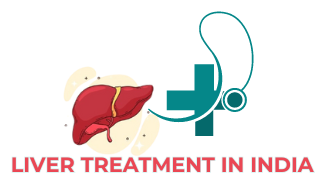Unmasking the Silent Threat: Fatty Liver Disease Explained
Fatty Liver Disease (FLD) has emerged as a growing health concern, silently affecting millions worldwide. This comprehensive guide delves into the causes, symptoms, and crucial lifestyle changes necessary for effective management, as well as exploring advanced treatment options when needed.
What is Fatty Liver Disease?
Fatty Liver Disease is characterized by an excessive accumulation of fat in liver cells. This condition can be broadly categorized into two types:
- Alcoholic Fatty Liver Disease (AFLD): Caused by excessive alcohol consumption
- Non-Alcoholic Fatty Liver Disease (NAFLD): Not related to alcohol use
NAFLD is further divided into:
- Simple fatty liver: Excess fat in the liver without inflammation
- Non-alcoholic steatohepatitis (NASH): More severe form with inflammation and potential liver damage
The Root Causes of Fatty Liver Disease
Understanding the underlying causes of FLD is crucial for prevention and management. Several factors contribute to its development:
Key Contributors to Fatty Liver Disease
- Unhealthy diet: High in saturated fats, sugars, and refined carbohydrates
- Sedentary lifestyle: Lack of regular physical activity
- Obesity: Excess body weight, especially around the abdomen
- Insulin resistance: Often associated with type 2 diabetes
- Excessive alcohol consumption: Primary cause of AFLD
Recognizing the Signs: Symptoms of Fatty Liver Disease
Fatty Liver Disease is often referred to as a “silent” condition due to its subtle onset. However, as the disease progresses, certain symptoms may become apparent.
Common Symptoms of Advanced Fatty Liver Disease
Implementing targeted lifestyle changes is crucial in managing Fatty Liver Disease and preventing its progression. Here are key strategies to incorporate into your daily routine:
Lifestyle Changes: The First Line of Defense Against Fatty Liver Disease
Hepatitis C is primarily transmitted through infected blood, often through shared needles or unsanitary medical procedures. It is notorious for showing no symptoms in its early stages, which can lead to chronic liver damage, cirrhosis, or liver cancer over time.
Essential Lifestyle Modifications for Liver Health
- Adopt a Liver-Friendly Diet:
- Increase intake of fruits, vegetables, and whole grains
- Limit consumption of saturated fats, sugars, and processed foods
- Choose lean proteins and healthy fats (e.g., olive oil, avocados)
- Embrace Regular Physical Activity:
- Aim for at least 150 minutes of moderate-intensity exercise per week
- Include both cardio and strength training exercises
- Consider activities like brisk walking, swimming, or cycling
- Maintain a Healthy Weight:
- Achieve and maintain a BMI within the healthy range
- Even modest weight loss (5-10% of body weight) can significantly improve liver health
- Limit Alcohol Consumption:
- For those with AFLD, complete abstinence is recommended
- For others, moderation is key – no more than one drink per day for women and two for men
- Manage Underlying Conditions:
- Control diabetes and insulin resistance through medication and lifestyle changes
- Address other metabolic conditions that may impact liver health
Advanced Treatment Options: When Lifestyle Changes Aren't Enough
In cases where Fatty Liver Disease progresses to advanced stages despite lifestyle interventions, more aggressive treatment may be necessary.
Medical Interventions for Advanced Fatty Liver Disease
- Medications:
- Vitamin E supplements for non-diabetic NASH patients
- Pioglitazone for patients with NASH and type 2 diabetes
- Emerging therapies targeting specific pathways in FLD progression
- Bariatric Surgery:
- For patients with severe obesity and NAFLD
- Can lead to significant improvements in liver health and metabolic profile
- Liver Transplantation:
- Reserved for end-stage liver disease or liver failure
- Requires careful evaluation and management by specialized transplant teams
The Role of Liver Transplantation in Treating Advanced Fatty Liver Disease
When Fatty Liver Disease progresses to cirrhosis or liver failure, liver transplantation may become the only viable option for survival.
Navigating the Liver Transplant Journey
- Evaluation Process:
- Comprehensive medical assessment to determine transplant candidacy
- Evaluation of overall health, liver function, and psychosocial factors
- Choosing the Right Transplant Center:
- Research top-rated liver transplant hospitals
- Consider factors like success rates, expertise of liver surgeons, and post-transplant care
- Types of Liver Transplants:
- Deceased donor transplant
- Living donor transplant (partial liver donation from a healthy individual)
- Post-Transplant Care:
- Lifelong immunosuppression therapy
- Regular follow-ups with liver transplant specialists
- Continued adherence to a healthy lifestyle
The Importance of Expert Care: Consulting Liver Specialists
Regular check-ups with a liver specialist or hepatologist are crucial for early detection and effective management of Fatty Liver Disease.
Benefits of Specialized Liver Care
- Early Detection: Regular liver function tests and imaging studies
- Personalized Treatment Plans: Tailored to individual needs and disease progression
- Access to Clinical Trials: Potential participation in cutting-edge treatments
- Comprehensive Care: Management of related conditions and complications.
- Transplant Evaluation: Expert guidance on transplant candidacy and timing.
Conclusion: Taking Control of Your Liver Health
Fatty Liver Disease, while potentially serious, is often manageable with the right approach. By embracing a healthy lifestyle, seeking guidance from liver experts, and considering advanced treatments when necessary, individuals can significantly impact the course of their liver health.
Remember, early intervention is key. Whether you’re at risk for Fatty Liver Disease or have already been diagnosed, taking proactive steps today can lead to a healthier liver and a better quality of life tomorrow. Stay informed, stay committed to your health, and don’t hesitate to seek expert care when needed. Your liver – and your overall well-being – will thank you for it.

